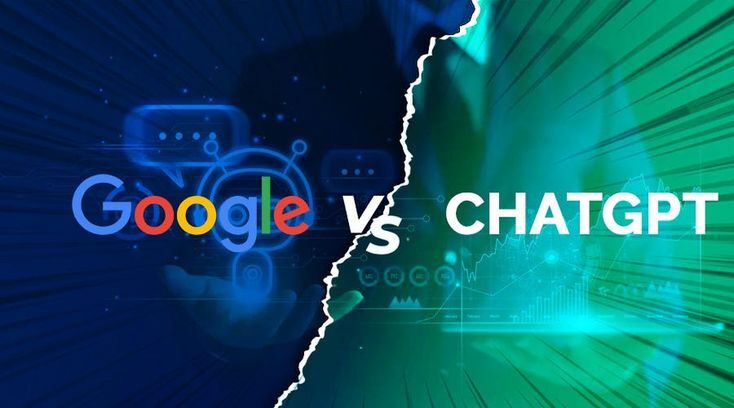The ChatGPT Hype Is Over — Now Watch How Google Will Kill ChatGPT.

Even the introduction of ChatGPT changed our perception about what conversational AI is capable of. Bloggers, coders, teachers, students, homemakers and individuals across the social stratum of a society are using the power of this technology for different purposes ranging from coding to writing, from generating new ideas to avoiding repetitive work. However, as we push deeper into the AI arms race, the hype surrounding ChatGPT is facing its biggest threat yet: Google.
The Initial Hype Around ChatGPT
There was an uproar when OpenAI deployed the ChatGPT. It was as if the future of AI had arrived overnight and taken up bartending as well as poetry writing, as well as debugging. This was the case, and thus people accepted the imperfections as such disruption was an unprecedented and holistically valuable experience. After that, millions of users visited the platform, and ChatGPT turned into one of the most popular services available online.
Why ChatGPT Dominated Early On
ChatGPT presented the defining features in natural language processing and generation. It was built to interact with users in a natural manner to ensure it could help make artificial intelligence easier to understand. Having good integration and community support it became well-liked among tech-savvy people and businesses. But this fast pace of growth was not unnoticed — and once again a giant of the industry appeared on the scene, Google.
Enter Google’s AI Strategy
But it’s not the first time Google chooses to take part in the world of Artificial Intelligence and machine learning. Its pioneering inventions such as BERT to mention but a few, transformer architecture for models like GPT are actually hallmarks in the field. While OpenAI aggressively continued development of the consumer-facing ChatGPT, Google was activating more subtly planning the integration of its superior technology across its environments.
Now, as the fervor around ChatGPT begins to decline, Google’s AI counter is gearing up. Here’s how Google’s strategy might overshadow ChatGPT:
- Integration with Existing Services They are not as competitive as it could be and this is where Google really shines – its ubiquitous service offerings. Deriving conversational AI so deep into the products like search, Gmail, Google drive, Maps, etc., is a-game changer. Think about an AI that doesn’t just assist you to write an email but can also intelligently send the email, read details from your google docs or update your calendar for you. This is a very peculiar experience for users which is difficult for any single platform to offer.
- Information Retrieval Google may well be better at answering questions in conversational form as may ChatGPT, but it has the world of information retrieval covered. Since Google combines conversation functions with its search engine algorithms, it is capable of offering answers that are contextually informed, but also backed up by Google’s vast knowledge of the entire internet. Another strength of Google, its database and crawling method enabler it to provide updated information compared to the information that may be offered by other search engines.
- Data and Personalization Google already knows more about most of us than any of us really want. To bring out the most appropriate features, Google has unrestricted access to the best user data: our browsing history, the location data we provide. This data can be used for highly targeted engagement which would mark chat conversations with AI as far more natural than anything which ChatGPT can currently do.
- Flexibility and Skill Google’s cloud and its experience on handling large scale models state that the firm’s AI interactions will be faster and more efficient. Although the AI models from OpenAi have issues on latency and scalability of models, Google’s cloud experience to serve millions without a hitch.
What About the Ethical Debate?
However, one question that has always accompanied AI from time past is how ethical is the data you use. It’s important to note that Google has faced many controversies with regard to data privacy, and opponents claim that putting an unhinged AI in charge of a firm with access to people’s information, personal and otherwise, is terrifying. Although such issues are yet to materialise due to the development of safety protocols concerning the use of Artificial Intelligence in Google. The question remains: Can people trust Google’s artificial intelligence for it does have a rather chequered past regarding the privacy of users’ data?
OpenAI’s Next Moves
The next evolutionary step for OpenAI is going to be learning and most likely building partnerships that make the ChatGPT more useful on its own. Partnering with other tech goliaths, or designing experiences that directly compete with Google’s ecosystem likely could be some of those routes. Furthermore, OpenAI will probably advance its models further to remain competitive, particularly for the spheres that are currently strong sides of ChatGPT, including creativity and people-like communication.
The Future of Conversational AI
It has seemed that ChatGPT is losing its popularity recently, but this does not mean that OpenAI has become obsolete. However, what we are moving to is a more clear and contentious phase of the AI battle. The latter space, as Google displays more of its technological muscle, will only become more interesting and user benefits from these will rise.
But there’s still one significant drawback that has to be monitored for an impact on ethics and society, when such titans of AI are competing against each other. AI is predicted to become more or less centralised meaning that it will be in the hands of a select number of firms. Only time will tell.

